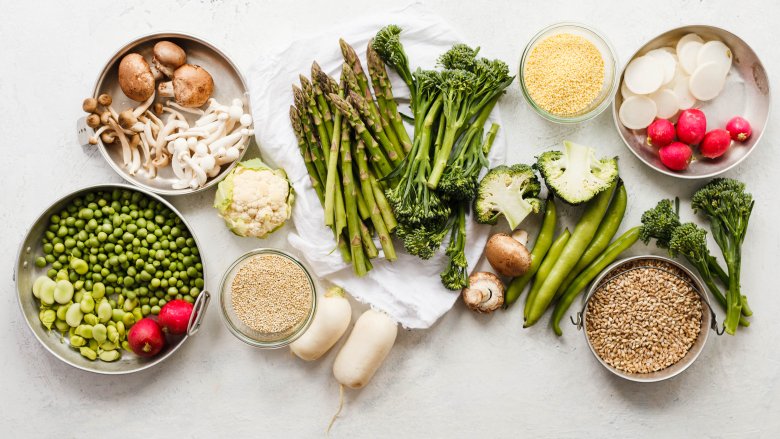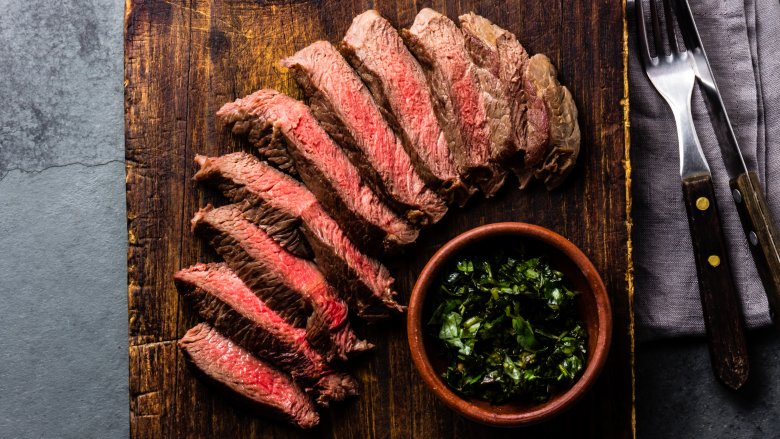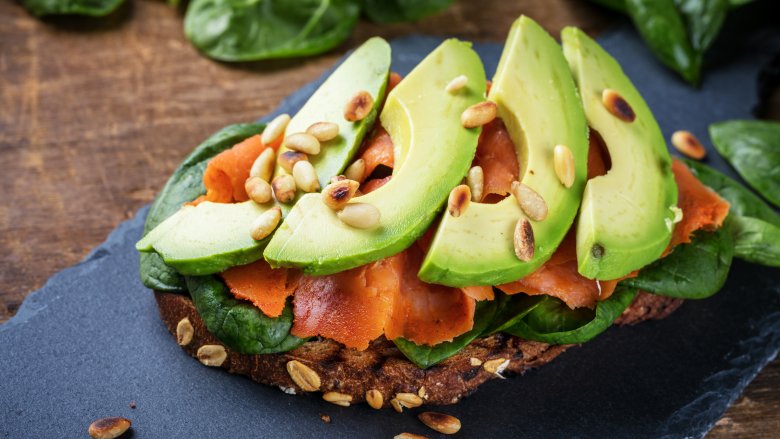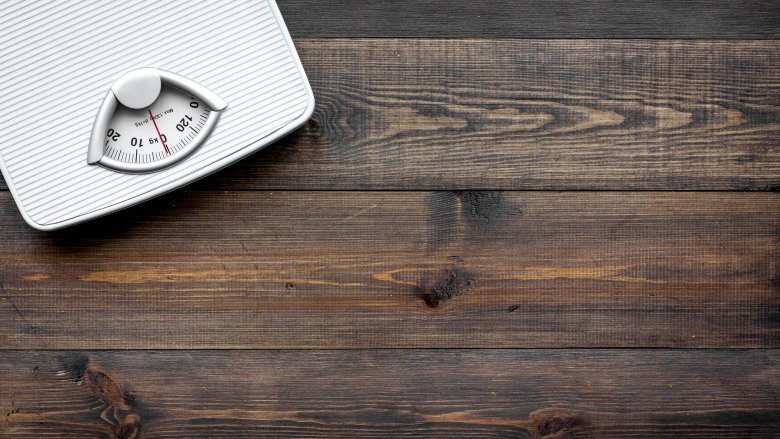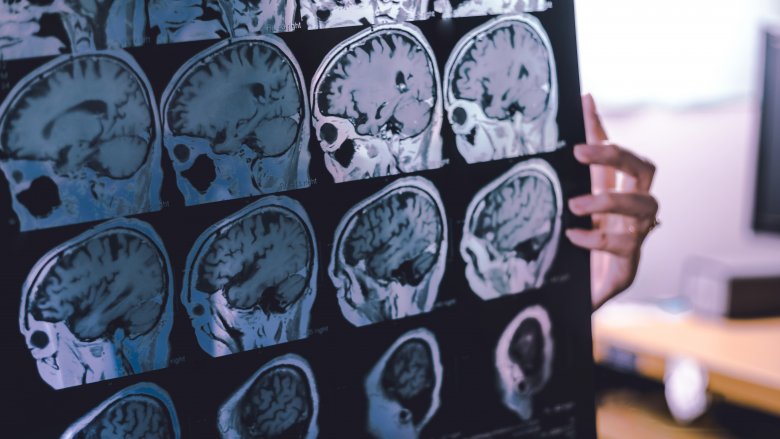What You Should Know About The Mediterranean Diet
Is the Mediterranean Diet for you?
When it comes to healthy eating, there's no shortage of programs, plans, and options out there for anyone wanting to shed those pesky ten pounds or lower their bad cholesterol. Plus, diets move in and out of vogue all the time, so one year it's all the rage to cut out all carbs, and the next it's all about bringing the carbs back but ditching all of the meat. Maybe the year after that everyone will be juicing for every meal?
But no matter what miracle diet the grocery store tabloids are pushing this week, there are a few tried-and-true approaches to healthy eating that the experts agree on. And the best among them, according to U.S. News & World Report, is the Mediterranean Diet. So what's the deal? Can you really drink wine and lose weight? Read on to find out why folks in the Mediterranean seem to have food all figured out.
At its foundation, it emphasizes eating plant-based foods
One of the most important aspects of the Mediterranean Diet is that it relies on a foundation of foods that spring from the earth. As Rachel Fine, a registered dietitian nutritionist, told The List, "The Mediterranean diet emphasizes eating primarily plant-based foods." That means you probably shouldn't rely on burgers and fast food as your primary sources of nutrients.
Additionally, Fine cites some specific foods that should be your primary sources of both carbs and protein. For carbs, she says "ideal sources include vegetables, fruit, legumes, beans, nuts, seeds, grains (such as faro, barley, oats, wheat berries, buckwheat) and minimally processed bread products (such as Ezekiel bread) OR locally baked bread products (local bakers are not generally using highly refined sugar additives)." And protein? "Lean proteins should come from ... plant-based sources (quinoa, faro, beans, legumes, nuts, seeds) in addition to low-fat dairy sources, eggs, and lean cuts of poultry and beef," Fine explained. So there clearly are a ton of food options!
It's also super important to exercise, according to the Mayo Clinic.
Keep the red meat to a minimum
It's not only easy to find red meat on the menu in the United States, but it's also relatively affordable to procure at grocery stores. That means a big, juicy steak might grace your dinner plate on the reg — but that's not in line with Mediterranean Diet principles. Why? Megan Casper, a registered dietitian nutritionist, told The List, "Red meat is high in saturated fats. The Mediterranean Diet emphasizes eating foods that are higher in healthier fats, like monounsaturated and polyunsaturated fatty acids." To that end, she recommends eating red meat no more than a few times a month, and having both chicken and fish twice a week each. Bring on the salmon, y'all!
That doesn't mean all red meat is the enemy, though. Casper added that "a recent study found that lean red meat could be added to the Mediterranean Diet without hurting the diet's heart healthy effects." That's some good news!
Sorry, you have to swap out the butter
Butter — is there anything more delicious in the world? A stock ingredient in everything from cookies and cakes to Eggs Benedict and shrimp scampi, it imparts a delicious and fatty flavor in everything. Unfortunately, it's not an ingredient you'll find on the table in the Mediterranean, ergo it's not part of the Mediterranean Diet. Jill Weisenberger, a Virginia-based registered dietitian nutritionist, told The List, "The eating pattern may not be low in fat, but it's fairly low in saturated fats and rich in unsaturated fats." And butter, of course, is high in saturated fat. Boo!
So what does Weisenberger recommend when it comes to fats and cooking tips? "Limit solid fats like butter and coconut oil. Instead use olive oil or canola oil or other liquid oils," she noted. So, while you might not be able to chow down a plate of buttered chicken, you can console yourself with an olive oil pesto ... in moderation.
Bring on foods with healthy fat!
Fat is the enemy, right? Actually no, according to registered dietitian nutritionist Rachel Fine, who says you should absolutely have it in your diet. She told The List, "Despite misconception about a 'low fat diet,' our body AND mind depends on fat. Fat is an essential macronutrient promoting satiety and satisfaction at meals." So there's no need to obsess about cutting it out of your diet — thank goodness!
That's not all fat does, either. Fine added that "fat aids with digestion, hormone production, vitamin transport, vitamin absorption, and even bone health!" That's a lot! So as long as you're eating fats that are naturally occurring and not processed, Fine says that's optimal for your health.
So what kind of delicious, fatty foods can you eat if following the Mediterranean Diet? According to Weisenberger, choices include "salmon, rainbow trout, herring, sardines, avocado, nuts, seeds, olives ... peanut butter, and other nut butters." Just be mindful of your portion sizes!
Use herbs and spices, and ditch the salt
There's no shortage of sodium to be found in the American diet, be it from fast food restaurants, frozen dinners, or the salt shakers on our tables. A staggering 90 percent of us are eating too much salt, according to a study in the American Journal of Public Health. Yikes!
But according to RDN Megan Casper, the Mediterranean Diet tends to jettison salt in favor of other lower sodium flavoring agents. "People in the Mediterranean use a variety of fresh herbs and spices in their cooking," she told The List. And that comes with a healthy advantage, too. "Not only do they add flavor and color to a meal, herbs are also full of nutrients and disease-fighting antioxidants called polyphenols," she continued. "In fact, research shows that a diet rich in polyphenols offers protection against the development of cancers, cardiovascular diseases, diabetes, osteoporosis, neurodegenerative diseases, and more." Sounds like a win-win!
You can have dessert if it's fruit
When you think of diets, dessert probably isn't the first thing that pops to mind. But the Mediterranean Diet doesn't strictly forbid it as long as you make healthy choices. As RDN Jill Weisenberger told The List, "Fruit is a more common dessert than baked goods. Top off your meal with fresh or dried fruits instead of cookies, cakes and pastries." So, you can't dive into an apple pie or a raspberry cheesecake, but you can nosh on berries and grapes — we'll take it.
So why reach for fruit, especially in an era where keto diets seem to be all the rage? "Fruits are nutrient-dense and relatively low in calories," Weisenberger continued. "They offer up fiber, vitamins and minerals as well as health-boosting phytochemicals like lutein, lycopene, flavonoids, and other polyphenols." Weisenberger also added that these compounds work with other nutrients in order to help keep you healthy. Additionally, they have antioxidant and anti-inflammatory properties, so you know fruit is your friend!
Cheers! You can keep wine on the menu
One of the more fun aspects of the Mediterranean Diet is that it's a social diet that encourages eating together with others as an activity. Also, you don't have to ditch the alcohol — cheers to that! So you can definitely keep that nice bottle of red you've stashed for a special occasion. But there are some parameters to follow, of course. "To me the key is to have a drink — maybe two — with a meal," Weisenberger told The List. "A glass of wine complements a meal. Drinking is not the event." So as long as you don't get too crazy, you won't be doing any harm to your body.
And contrary to popular belief, it doesn't have to be red wine that you drink. "It may be more common to have red wine in many countries around the Mediterranean Sea, but many studies show little difference in health effects between one type of alcohol and another," Weisenberger continued.
Note that if you don't drink, or don't drink much, you don't need to add alcohol to your diet. But, if you do, a little bit is just fine.
That's right: you'll lose weight!
Although the Mediterranean Diet is often referred to as less of a "diet" and more of a lifestyle plan, you can still lose weight and keep it off, according to five studies reviewed by Harvard University. The studies, which included nearly 1,000 participants, found that those on the Mediterranean Diet lost between 9 and 22 pounds over a year's time. That beat out those on a low-fat diet, who only lost between 6 and 11 pounds. Right on!
Of course, just eating foods included in the plan won't magically melt the inches off. Susan Bowerman, a registered dietitian and Director of Worldwide Nutrition Education and Training at Herbalife Nutrition told The List, "Since calories aren't specified (it's a 'dietary pattern,' not 'a diet'), you'll need to pay attention to your portion sizes, calories, and activity level to maintain (or lose) weight. Wine isn't a requirement; and, while olive oil is the preferred oil, it doesn't mean you should be drenching your foods with it." So as long as you pay attention to your portions and stay active, you're likely to drop a few pounds.
It reduces your risk of heart disease
Another benefit of following the Mediterranean Diet is the significant impact it can have on your heart health. According to the Mayo Clinic, adopting the Mediterranean lifestyle can reduce your risk of heart disease because it lowers your low-density lipoprotein cholesterol, or LDL cholesterol — that's the so-called "bad" cholesterol that builds up in your arteries — and you definitely don't want a lot of that hanging around inside of you!
But that's not all! There's additional data that shows that the Mediterranean Diet is good for not just your cardiovascular health, but also your overall health. According to a meta-analysis of more than 1.5 adult men and woman, all of whom were healthy, following the Mediterranean Diet reduces your risk of heart-related death and early death in general. Who wouldn't want to get healthier with a plate of seared scallops and a glass of Merlot?
Help manage type 2 diabetes
For some people, the manner in which they consume food can literally be a matter of life or death. That's certainly the case for people with type 2 diabetes, whose bodies either don't produce enough insulin or have become insulin-resistant. The good news is that, according to a study in the Annals of Internal Medicine, the Mediterranean Diet helped hundreds of these folks drop more weight and go longer stretches of time without needing blood-sugar-lowering medication than a low-fat diet did.
In other words, following the Mediterranean Diet helped people with type 2 diabetes to better control their blood sugar levels with diet. As Dr. Christine Laine, the editor of the journal, told CNN, "The people on the Mediterranean diet had better blood-sugar control because of the diet, and the trigger for diabetic drugs is when blood sugar is higher than you want it to be." That's great news for our diabetic friends!
Can it really prevent cancer?
Fewer things are scarier than the big C word: cancer. Fortunately there are a few things you can do to reduce your risk of getting such a diagnosis, and it turns out that following the Mediterranean Diet is one of them! RDN Megan Casper told The List, "The more a person follows the Mediterranean Diet the lower their risk of death from cancer and risk of developing different types of cancer (such as colorectal cancer, breast cancer, gastric cancer, liver cancer and more.)" It's pretty amazing to think that your diet can be such an effective weapon against disease!
So what's the device at work here? While it sounds a little bit like magic, it's actually simpler than you might think. "It's believed the Mediterranean diet reduces cancer risk thanks to its abundance of fruit, vegetables, and whole grains," Casper continued. So even though no one is immune from cancer, some prevention is possible.
This is what it does to your blood pressure
On top of being a good diet for cardiovascular health, the Mediterranean Diet also can lower a person's blood pressure, according to Harvard Medical School. And it's not just because of the emphasis on using herbs and spices to flavor food instead of salt, although that certainly helps. Rather, it's the all-around approach to healthy eating that can prevent you from developing hypertension, or help you get those numbers back down if you already have it.
Specifically, it's the reduction in red meat, processed carbohydrates and sugars, and salty foods in favor of vegetables, fruits, complex carbohydrates, legumes, unsaturated fats, and other healthy foods that can help you maintain a healthy blood pressure. And given that hypertension can cause all kinds of scary things, such as stroke, heart attack, and organ damage, it's super important to get those numbers under control!
It helps keep dementia and depression at bay
It's not just your physical health that benefits from the Mediterranean Diet, but your mental health as well. For one, according to a study in Molecular Psychiatry, adopting these habits can help ward off depression. In the study, scientists found that people who diligently followed the Mediterranean Diet had a 33 percent lower risk of receiving a depression diagnosis compared to those who did not adhere to the diet. That's not to say that any diet is a cure-all for depression, but the available data at the very least shows there's a connection between what we eat and how we feel.
But wait — there's more! In 2018, research presented at the Alzheimer's Association International conference showed that healthy older adults who adhered to the Mediterranean Diet (or similar diets) decreased their risk of dementia by almost one-third. Pass the Greek salad and lentil soup, please!
A healthier, younger brain and a longer life
With aging comes certain inevitabilities, such as graying hair, more wrinkles, saggier skin, and ... brain shrinkage? Indeed, as we get older we are susceptible to losing some of our brain mass, according to a study in Postgraduate Medical Journal. Even though it's a natural occurrence, we don't think that sounds especially pleasant.
Fortunately, there are things you can do to preserve as much of your gray matter as possible, thereby decreasing your risk of having a stroke, developing dementia, or getting an Alzheimer's disease diagnosis. And yes, one of those things is to follow the Mediterranean Diet! That's because, according to a study in the journal Neurology, participants who followed the diet were less likely to lose brain volume as they aged as opposed to those who didn't follow such a meal plan. Following the Mediterranean Diet can, in turn, keep your brain (and the rest of you) healthier and on the right track for a longer life.

